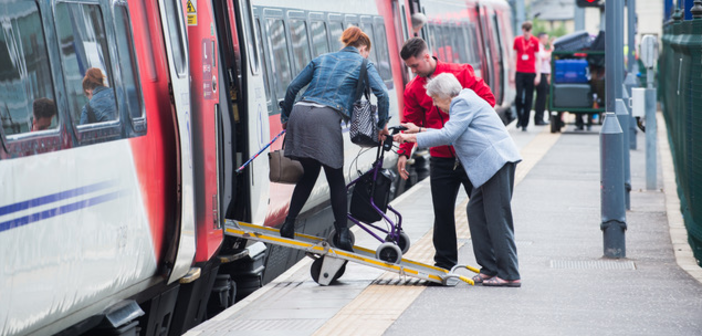Transreport, a transport accessibility company, has received a share of the Department for Transport’s (DfT) First of a Kind (FOAK) funding to further develop its passenger assistance app, which aims to make rail travel accessible for all.
According to Transreport, its app is the first for the British transport industry which allows disabled passengers to request assistance for journeys across the national rail network.
The app launched across the UK in May, and the company is now working on functionality enabling real-time validation of the availability of accessibility equipment at the time of booking.
With this latest £410,000 funding from the DfT’s FOAK competition, Transreport is also working on a project which will tackle rail cleanliness and aims to improve passenger comfort and confidence.
The project will integrate end-to-end cleaning management software with existing train operator infrastructure to record all cleaning activities from in-service cleaning to deep, overnight cleaning and sanitisation so it can be monitored by staff more effectively.
Simon Edmonds, deputy executive chair and chief business officer, Innovate UK, said: “As we move ever closer to getting past the pandemic, passengers are returning to the railway. To give them ever greater confidence that rail is safe and sustainable we called upon UK innovators to come up with fresh ideas.
“Yet again the response has been fantastic. Not only will passengers benefit from these great innovations but business prospects are bright in this sector too.”
In total, the fifth round of the FOAK competition has funded 30 projects with a share of £9m. The competition is focused on developing technology that can improve journeys for travellers, encourage passengers back onto the network and reducing the environmental impacts of rail following Covid-19.
Transport secretary, Grant Shapps, added: “These winners will hopefully play a role putting passengers at the centre of our railways as we build back better from Covid-19.
“The competition always throws up surprises and the ideas shown could transform how we travel in future.”





